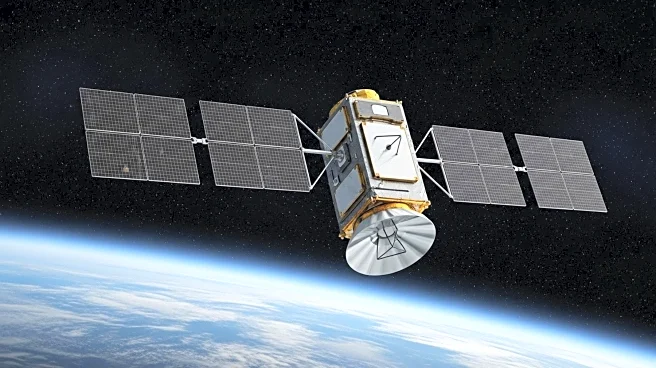What's Happening?
Skynopy, a French ground station startup, has secured a contract from the European Space Agency (ESA) to commercialize adaptive modulation technology aimed at improving satellite data download rates. The contract, valued at 75,000 euros ($89,000), will enable Skynopy to integrate its software with three satellite operators, which will be selected through a competitive process next month. The focus will be on Variable Coding and Modulation (VCM) and Adaptive Coding and Modulation (ACM), technologies that allow satellites to adjust signal strength and efficiency based on changing conditions. Despite their widespread use in satellite and terrestrial telecom networks, these technologies are underutilized in Earth observation due to integration costs and complexity. Skynopy's initiative is part of ESA's Programme for Userbase Enhancement (PUSH), which supports companies developing space-related products and services.
Why It's Important?
The adoption of adaptive modulation technology by Skynopy could significantly enhance the efficiency of satellite data transmission, potentially doubling download rates. This advancement is crucial for the Earth observation sector, where data transmission speed and reliability are paramount. By optimizing signal throughput, satellites can maximize bandwidth usage, leading to more efficient data handling and reduced operational costs. The initiative aligns with ESA's goals to foster innovation in space technology, potentially benefiting industries reliant on satellite data, such as environmental monitoring, agriculture, and disaster management. The successful integration of these technologies could set a precedent for other companies in the space sector, driving further technological advancements.
What's Next?
Skynopy will proceed with selecting three satellite operators to integrate its adaptive modulation software, a process expected to occur next month. The competitive selection will determine which operators will participate in the technology's commercialization. As the project progresses, stakeholders in the satellite industry, including operators and service providers, will likely monitor its outcomes closely. Successful implementation could lead to broader adoption of adaptive modulation technologies across the sector, prompting further investments and innovations. ESA's continued support through the PUSH program may encourage other startups to pursue similar advancements, fostering a competitive and innovative environment in the space industry.
Beyond the Headlines
The integration of adaptive modulation technology into Earth observation satellites could have long-term implications for data management and transmission efficiency. As satellites become more adept at adjusting signal strength dynamically, the industry may see a shift towards more flexible and responsive data handling systems. This could lead to new standards in satellite communication protocols, influencing regulatory frameworks and industry practices. Additionally, the increased efficiency in data transmission could enhance the accuracy and timeliness of satellite-derived information, impacting sectors such as climate research and emergency response. The initiative underscores the importance of technological innovation in maintaining the competitiveness and sustainability of the space industry.









